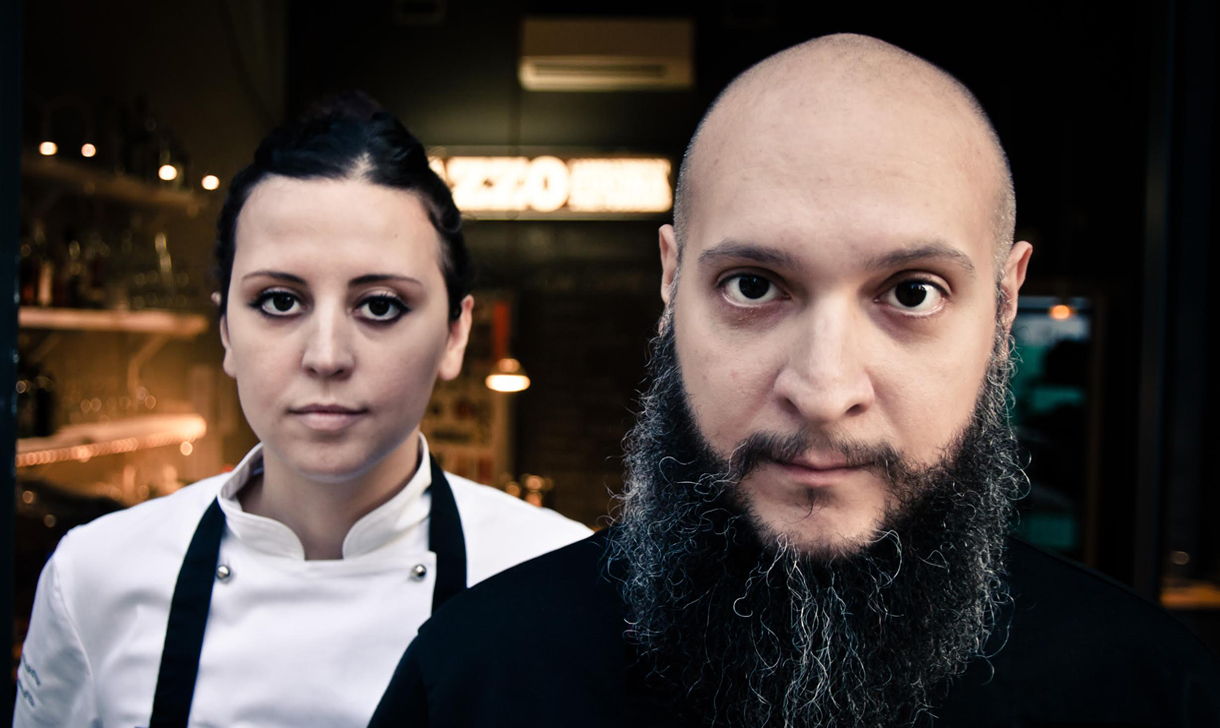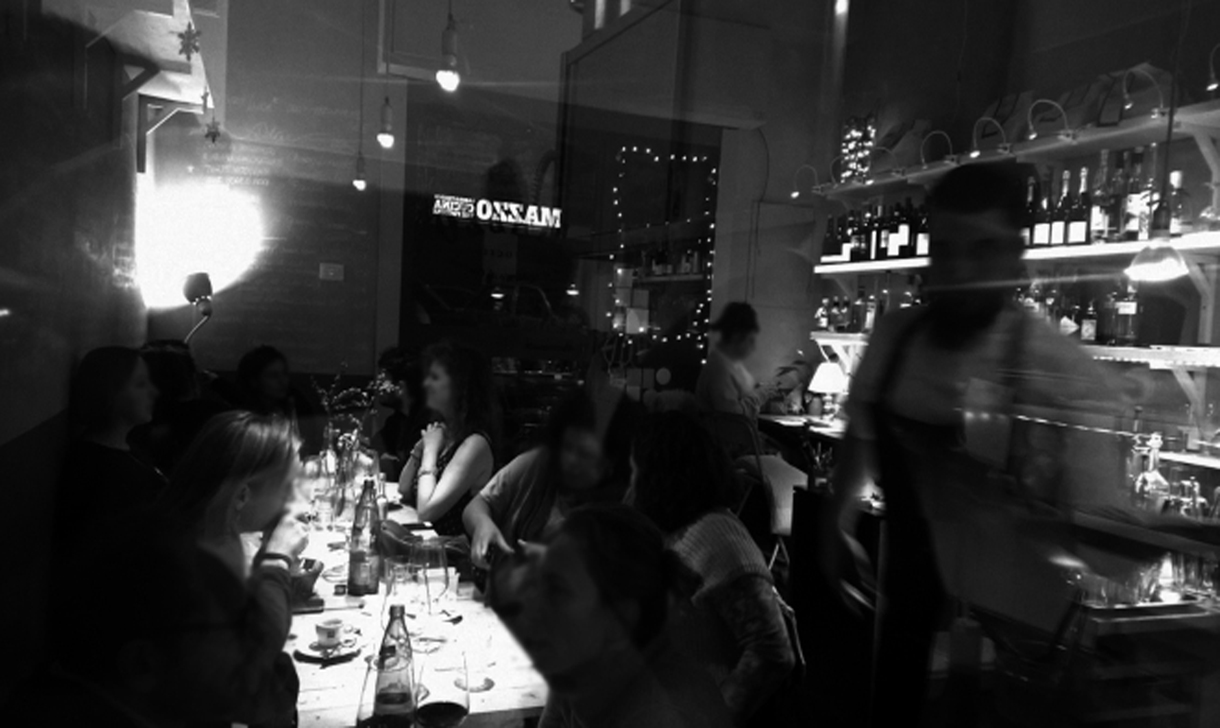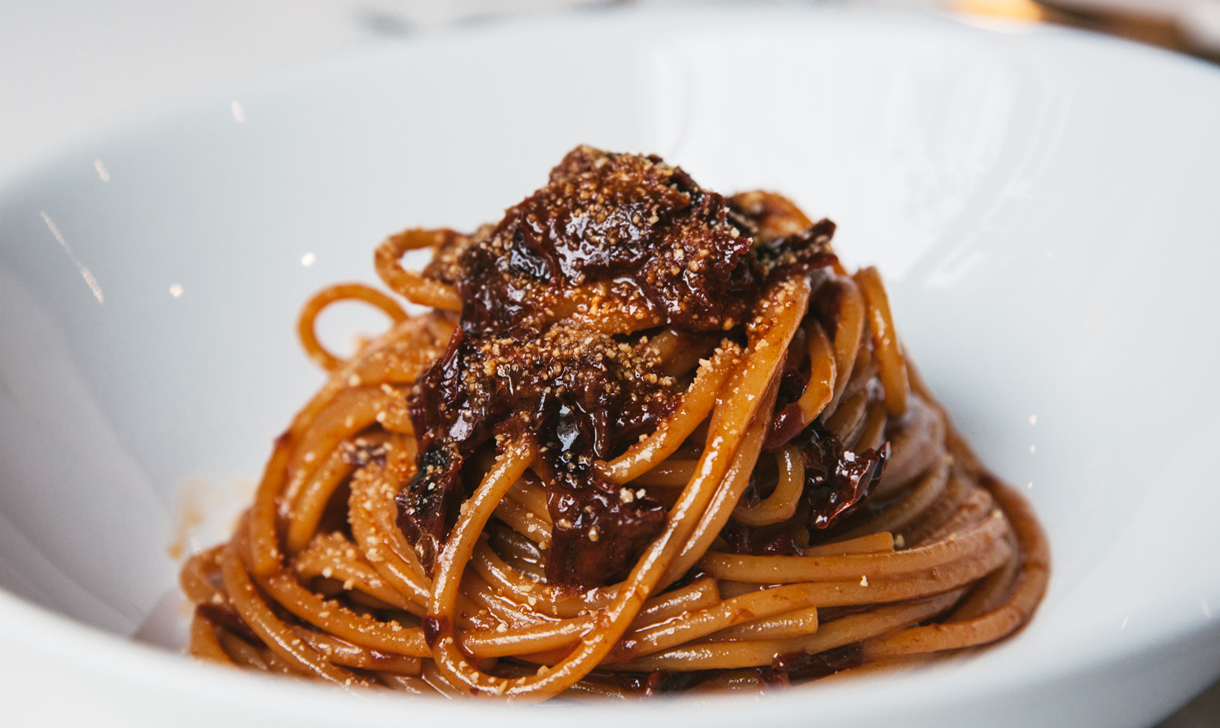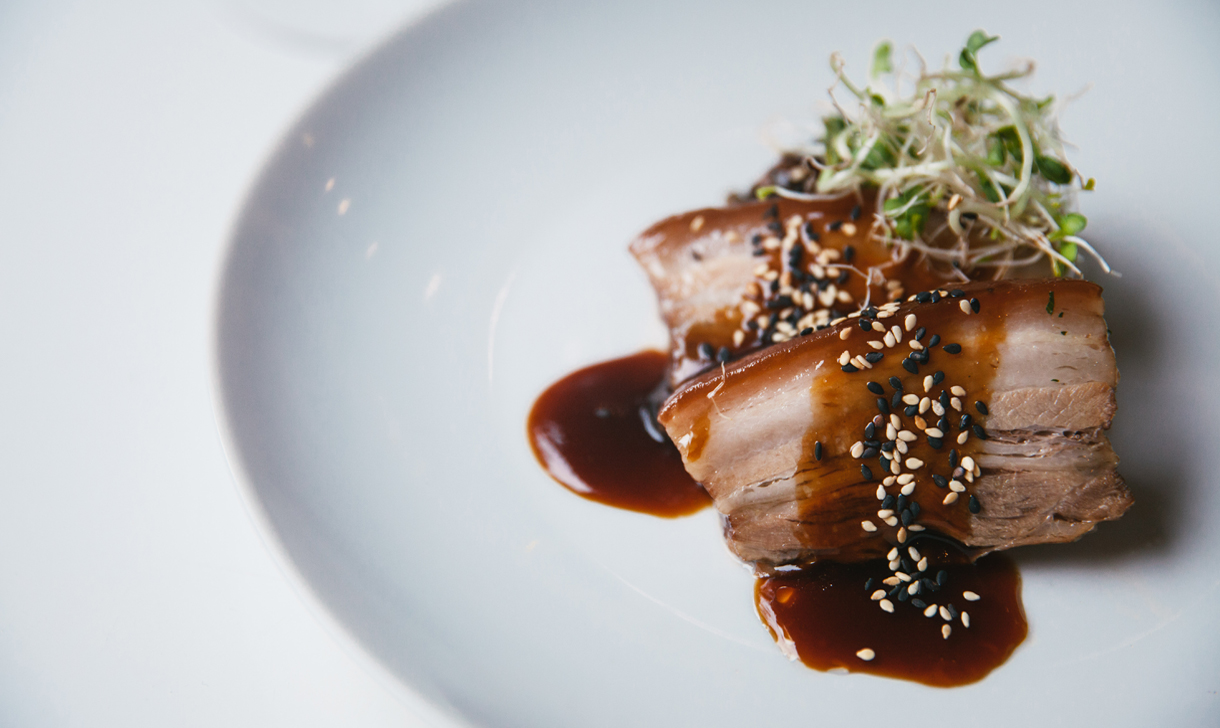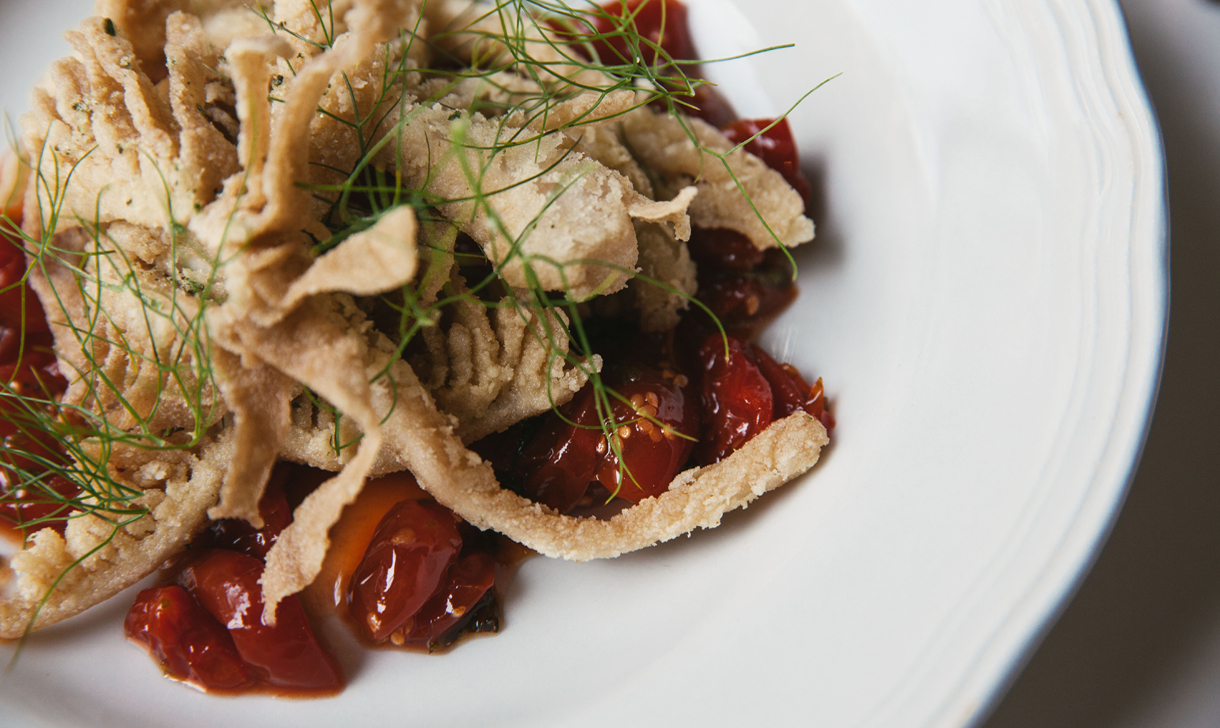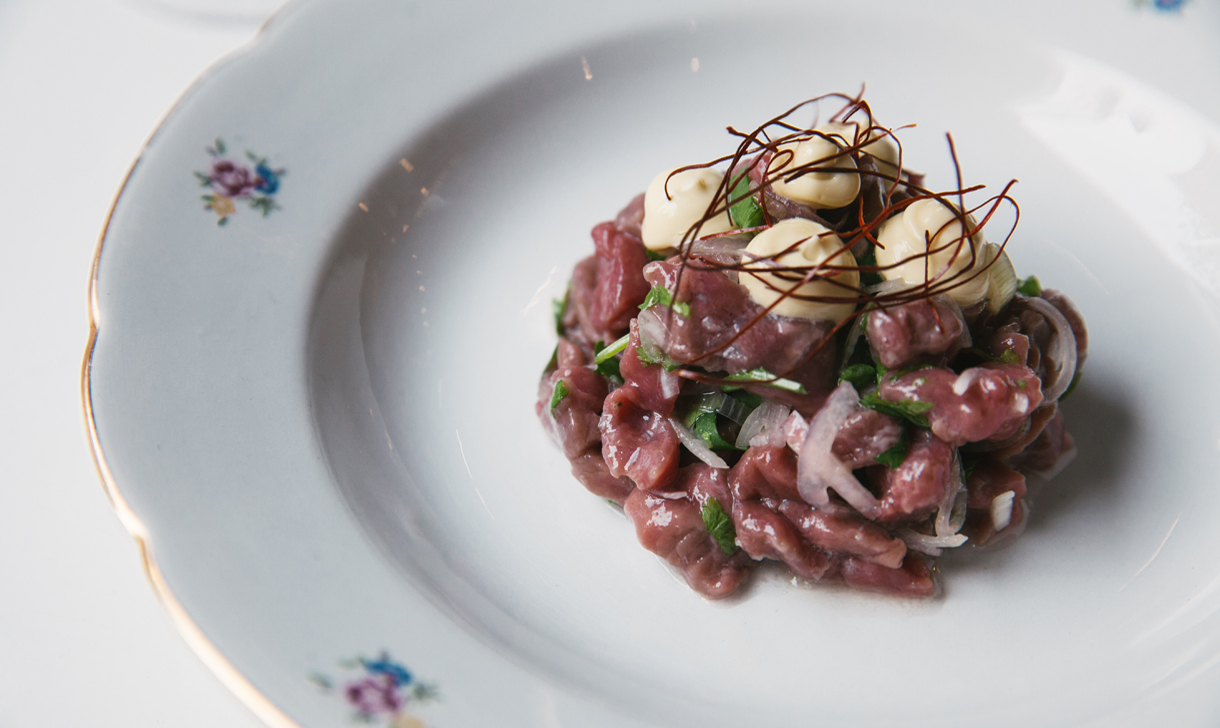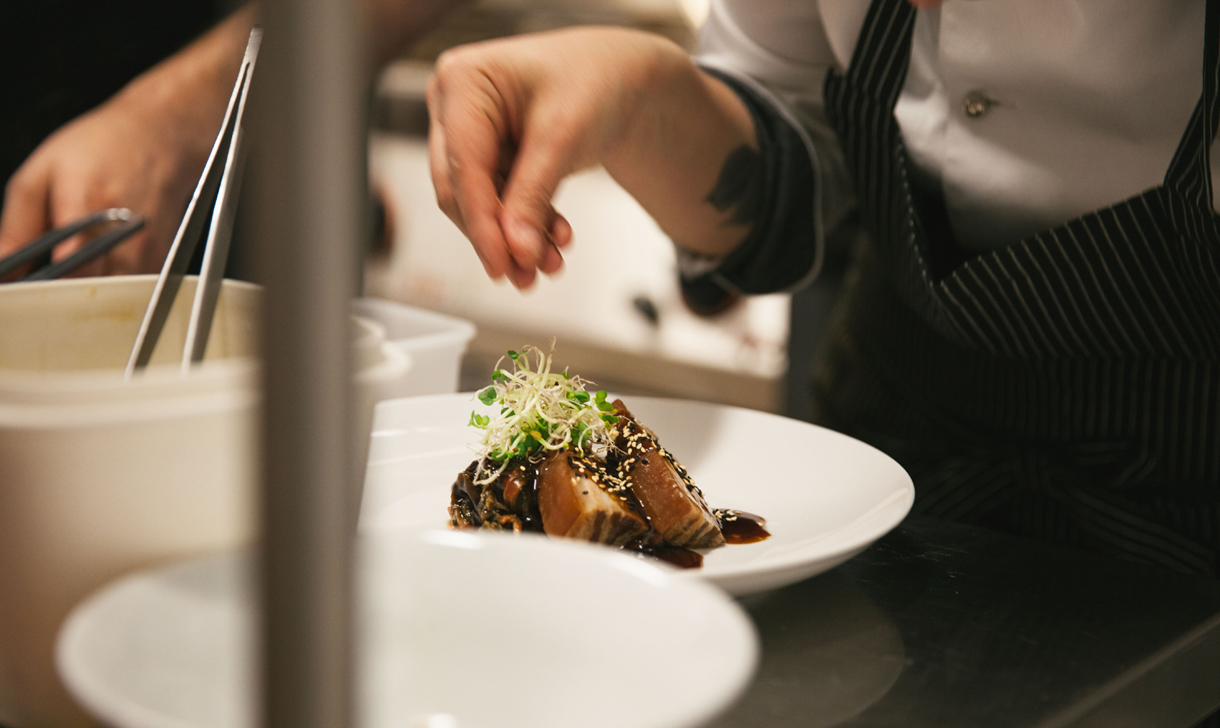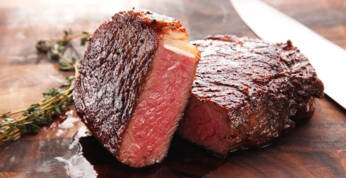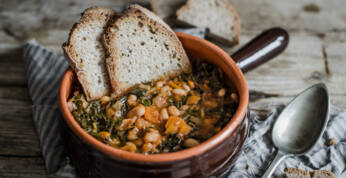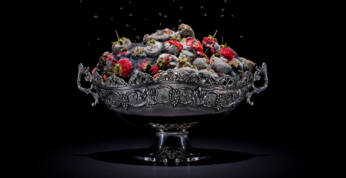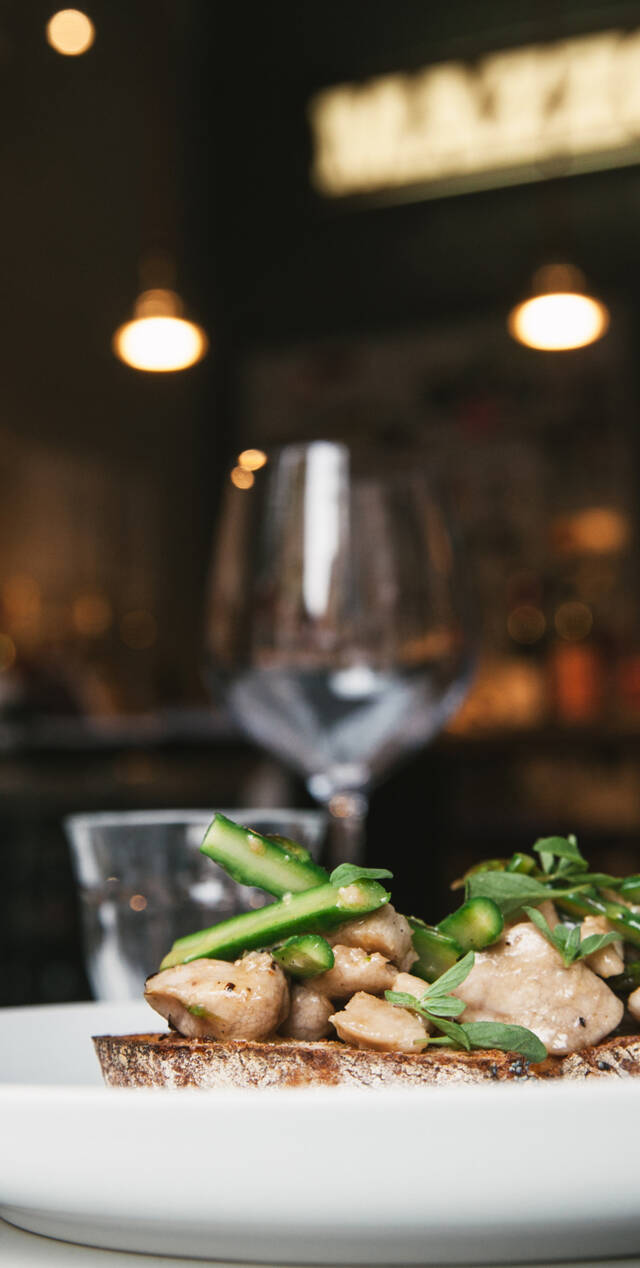
The Fooders, double trouble
Passion and tenacity, when the kitchen turns into a playground
They met at 16 and have been together ever since. It may sound like the opening of a romantic novel, but we’re talking about the Fooders, aka Marco Baccanelli and Francesca Barreca, a creative couple at work and in life, who are making a name for themselves as restaurateurs.
Today, the Fooders’ stage is Mazzo, a tiny restaurant they opened in 2013 in Centocelle, a working-class district on the outskirts of Rome. Just one table with 10 places, plus a small counter, the menu handwritten in chalk on the walls, an impressive selection of gins and liqueurs on the shelves. And an open kitchen, their playground.
“We’ve been working together for a long time. Our ideas differ, but are complementary, and we understand each other immediately.” The partnership wasn’t always in the kitchen: it began when they were youngsters organising concerts together, then they took separate professional paths. At a certain point along the way, cooking appeared on the scene. First with live culinary performances, events, a blog. Then Mazzo, when the Fooders went into overdrive. Before long they were receiving national and international recognition, taking part in projects, winning food guide awards, attracting media coverage: their talent has even reached the pages of The New York Times.
But let’s take a step back.
“Cooking is wonderful, it’s alive, never repetitive. It’s a combination of thought and action, I find it therapeutic. When people asked me how my love of cooking began, I don’t have any heart-warming tales to tell. Yes, my grandmother and mother are excellent cooks, but all Italians could say the same,” says Marco, while Francesca explains “We fell in love with cooking simply through eating, and decided to turn our passion into a profession.”
When you decide to make your passion your livelihood, the first thing is to give yourself a solid grounding, which is what Marco and Francesca did, taking courses in haute cuisine and working in restaurants. A classic path, even if they began at a relatively late age. “It’s only when you work in a kitchen that you find out what you’re made of. If you enjoy challenges, you’ll choose cooking, otherwise you’ll be off.” Francesca is blunt, but what she says is true: irrespective of the number of stars a restaurant has, this job is hard work, physically and mentally. “You learn organisation and cleaning, you develop the manual skills and movements. But learning to manage the emotional side is the biggest test, it’s what separates those who can from those who can’t.”
Tenacity isn’t Marco and Francesca’s only strength, however. “We grew up in the 1990s, and were fully immersed in the urban environment of those years, building up a very rich cultural legacy.” At gastronomic level too. At that time, for example, ethnic restaurants were booming in Rome. This led them to their exploration of Asian techniques, which continue to fascinate them today. Indeed, one of Mazzo’s most popular dishes, pork belly, has an unashamedly Asian inspiration, as does the dashi that appears on the menu from time to time.
When they’re creating a dish, “everything is a source of inspiration: a song, a movie, a dream,” Marco tells us. “Sometimes an ingredient gives you the idea; other times you simply remember the sensation you experienced eating something as a child and you want to re-create it.” The important thing is to avoid blatant exaggeration: “as a diner, first of all I want to enjoy myself, eating honest but amazing food. That’s what I’m looking for when I’m thinking about a new dish. Mannerism has no place in the kitchen,” adds Francesca. “I don’t want to impress people with exercises in style: I want my clients to be engaged with what they’re eating.”
Could Mazzo be described as fusion? The term is reductive.
The kitchen is open to influences, but there’s a great deal of tradition too. The point is that everything is globalised today: “everyone follows their own path, but they also look further afield. Today we’re all naturally exposed to the traditions of other countries, and if they appeal to you, you’re inevitably influenced by them.” You understand what they mean immediately when you eat at Mazzo: one of their iconic dishes, fried tripe on a tomato chutney, is a reference to a solid tradition in Roman cooking combined with a preparation that is traditional, but comes from thousands of miles away.
“Cooking juices, stocks and reductions are also a fundamental part of our cooking today: that’s how we concentrate our flavours,” Marco explains. This approach has been regaining favour recently, in opposition to a fast cooking style, which is unfussy yet has some shortcomings. Reductions and cooking juices take longer, but they give the dish a different body, and mean that the whole animal can be used, including the cheaper cuts, whose qualities can be brought out with different cooking methods. Offal, for example, is very versatile and a staple of Roman cuisine. “We use a lot of offal, which is why we’re described as traditional. But that’s not the whole story: we’re looking for a finer tradition, combined with greater consistency in our choice of ingredients.”
Consistency also means using forgotten ingredients such as ciriole, small eels, served fried at Mazzo as custom dictates, with a twist provided by a garlic- and rosemary-flavoured mayonnaise. An encounter between tradition and creativity: the shape changes but the contents of the dish are the same, and the result is surprising.
A different background has given the pair a broader vision, a more rapid creative approach compared with the more rigid structures of a purely academic training. “Of course, it’s been difficult to make our name, and some people may still see us as practitioners of the eclecticism that distinguished our early years. We just want to improve every day, without following fashion.” That’s the way they like it: not conforming to cliché. They’re a thug couple in attitude, not by choice.
Plans for the future? They have plenty, all top secret.
“Then we’re going to conquer the world.” Francesca is joking, but really their approach would benefit many restaurateurs. The truth is that cooking, like all jobs, can be boring or it can be great fun. They’ve chosen to enjoy themselves, offering a marvellous example of freshness and innovation.
“When I have fun I feel at peace with myself and I transmit this to other people in the food I cook,” says Francesca. How great it would be if everyone in the business followed her example.
Related Articles



